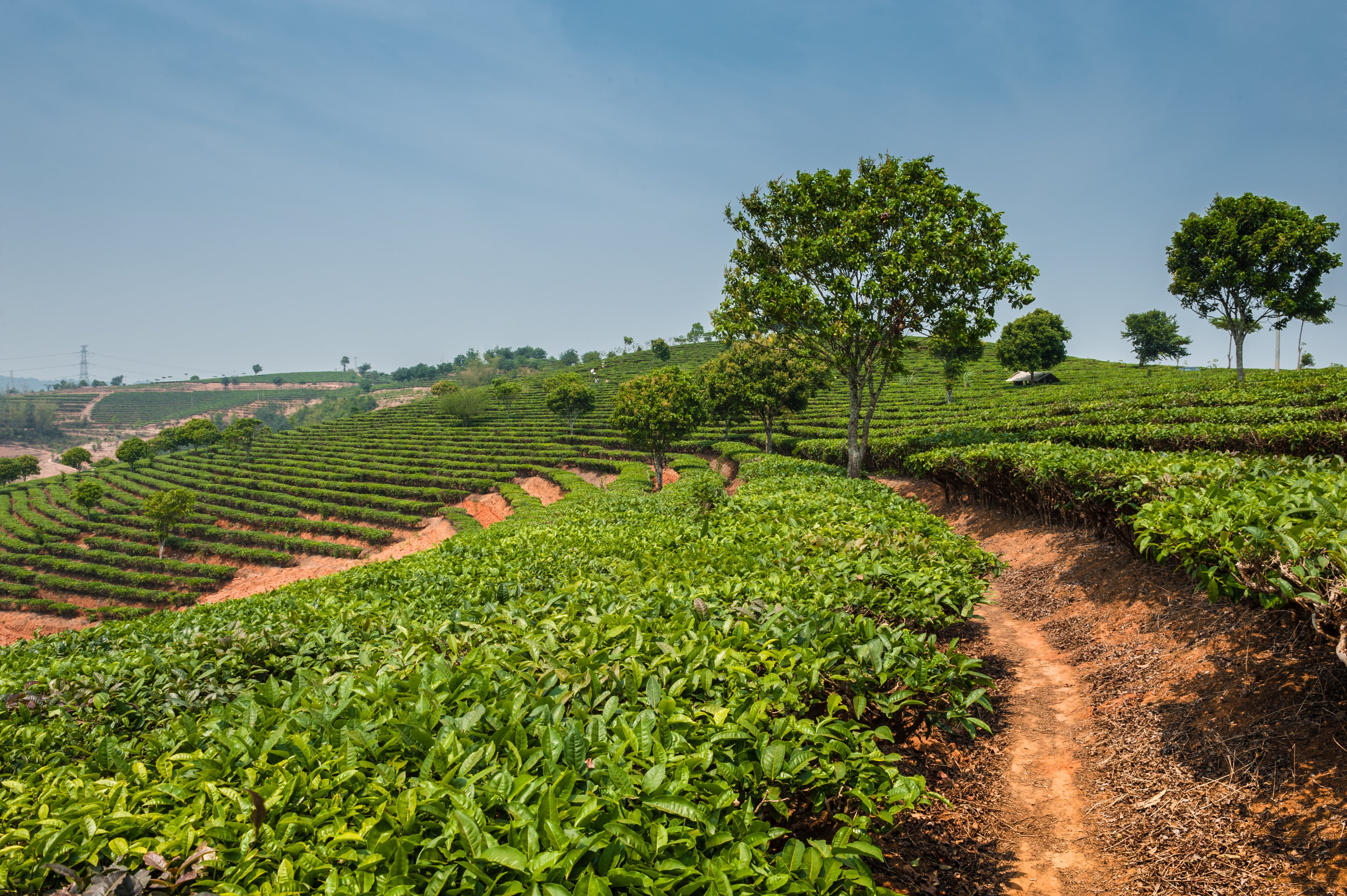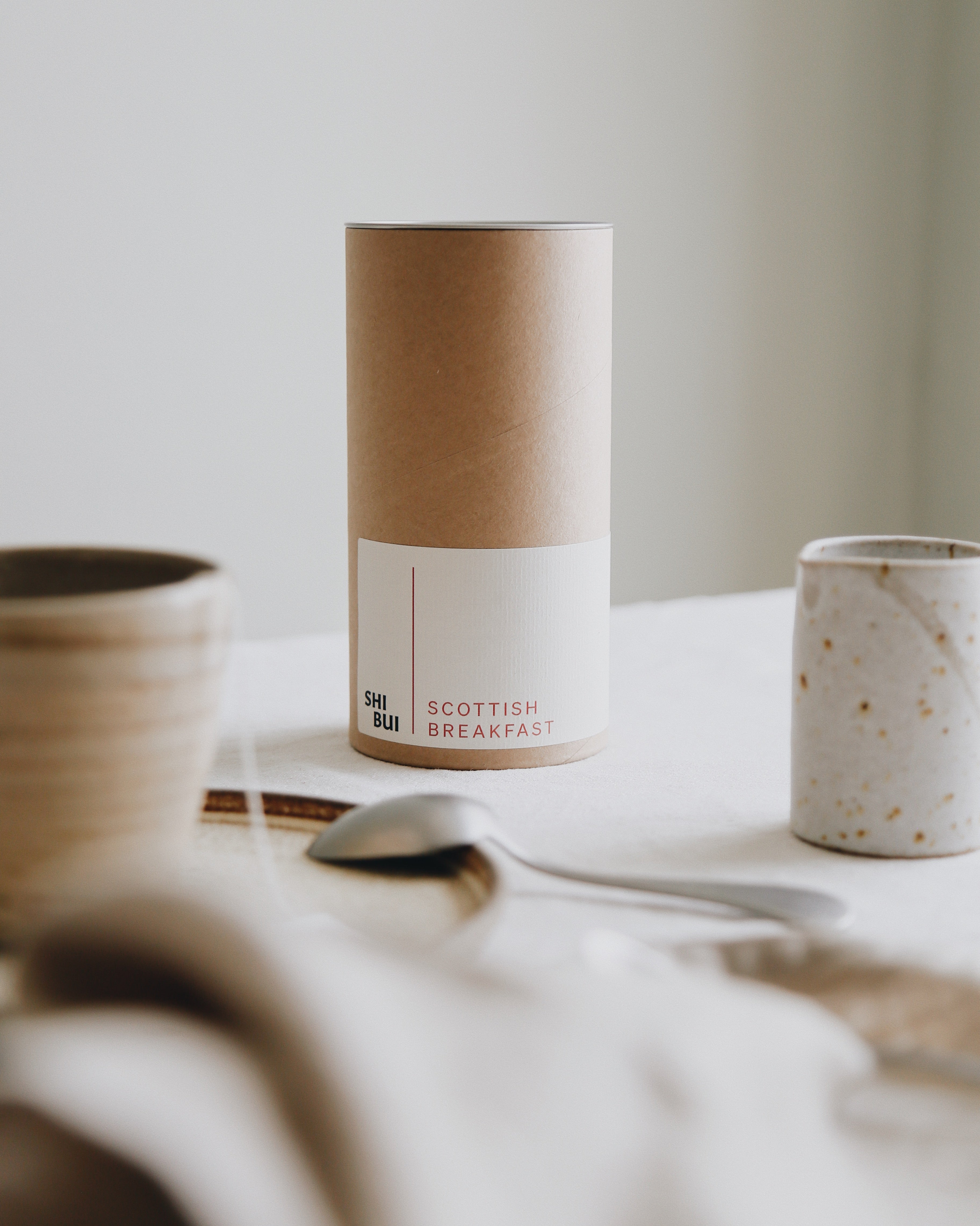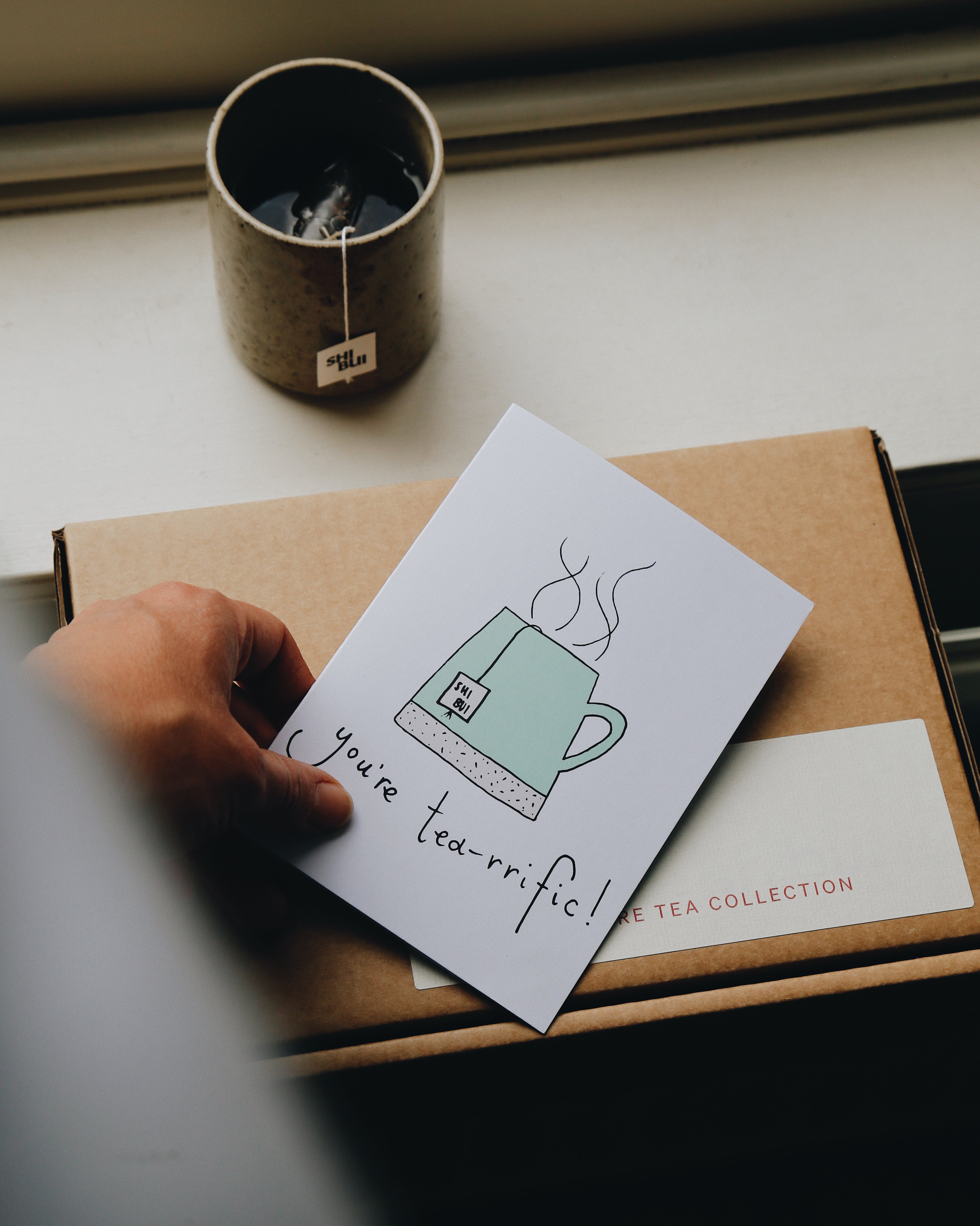
Types of Tea: A User-Friendly Guide
Understanding Tea
Tea is a beverage produced by steeping the leaves and buds of the tea plant (Camellia sinensis) in hot water. Enjoyed in China since as early as 2700 BCE, tea was brought to Europe for the first time in 1610. There are five primary types of tea: black, green, oolong, white, and pu-erh. All of these contain caffeine, but the amount varies based on steeping time and temperature.
Herbal teas (like peppermint or chamomile) are not considered true teas but infusions or tisanes, as they do not come from Camellia sinensis. These are typically caffeine-free, with the exception of yerba mate and guayusa, which contain natural caffeine.
What is Black Tea?
Black tea is known for its rich, full-bodied flavour and high caffeine content. Some of the most popular black teas include Breakfast tea, Earl Grey, and Assam tea. Black tea is fully oxidised, meaning the leaves are left exposed to air, giving them their dark appearance and bold flavour. Major producers of black tea include China, India, Sri Lanka, and Kenya.
Black tea is often enjoyed with milk and sugar, enhancing its robust taste. Here are some black teas available at Shibui:
Keemun from China: Known for its floral and fruity notes with a hint of smoke.
Kenyan Gold from Kenya: Offers a brisk, malty flavour that is invigorating.
Ceylon Orange Pekoe from Sri Lanka: Provides a bright, citrusy flavour profile.
Our bespoke blend of English Breakfast from India and Sri Lanka: A balanced, full-bodied blend perfect for any time of day.
What is Green Tea?
Green tea is known for its fresh, grassy flavour and light body. Unlike black tea, green tea is minimally oxidised. The leaves are pan-fired or steamed immediately after picking to prevent oxidation, retaining the green colour and delicate taste. Green teas are primarily produced in China and Japan.
Here are some of the green teas available at Shibui:
Sencha from Japan: The most popular choice in Japan with a sweet, vegetal flavour and a smooth finish.
Jasmine from China: Scented with jasmine flowers, this tea offers a fragrant aroma and floral taste.
Genmaicha from Japan: A unique blend of green tea and roasted brown rice, providing a toasty, nutty flavour.
Dragonwell (Long Jing) from China: Renowned for its smooth, chestnut-like flavour and flat, jade-green leaves and is the most popular tea in China.
Karigane from Japan: Made from the stems of the tea plant, offering a mild, sweet taste with a creamy texture.
What is Oolong (or Wulong) Tea?
Oolong tea is a traditional Chinese tea made from partially oxidised tea leaves. The oxidation process ranges from 10% to 70%, giving oolong tea its distinctive flavour and aroma, which can vary widely depending on the level of oxidation. The processing of oolong tea involves several stages, including withering, bruising or shaking, oxidation, and firing, which develops its unique characteristics. The leaves are often rolled or twisted, which enhances their flavour and appearance. Oolong teas are mainly produced in China and Taiwan.
Here are some oolong teas available at Shibui:
Ti Kuan Yin (or Tieguanyin) from China: Known for its floral and creamy notes, with a smooth, lingering finish.
Coconut Oolong: A flavoured oolong tea with a hint of coconut sweetness, offering a tropical twist.
What is White Tea?
White tea is the least processed type of tea, allowing it to retain the natural essence of the tea leaves. It is made using the young leaves and buds of the tea plant, harvested before they fully open. This gives white tea its delicate, subtle, and sweet flavour. After harvesting, the leaves are gently withered and air-dried to reduce moisture and prevent oxidation. The name white tea comes from the silvery-white hairs on the unopened buds, giving the tea a whitish appearance. White tea originated in China and is still mainly produced there.
Here are some white teas available at Shibui:
Silver Needle: Made from only the buds, offering a delicate and sweet flavour with a silky texture.
White Peony (Pai Mu Dan): Includes both buds and leaves, providing a fuller, more robust flavour with a floral aroma.
Silver Jasmine: A white tea scented with jasmine flowers, adding a layer of fragrant aroma to its light, sweet taste.
What is Pu-erh (or Puer) Tea?
Pu-erh is a fermented tea that comes in two varieties: Sheng (raw) and Shu (ripe). It undergoes a unique fermentation process that can take months or even years, resulting in a tea that continues to age and improve over time. This fermentation gives Pu-erh its characteristic earthy, mellow flavours and deep, dark colour. Pu-erh tea is exclusively produced in Yunnan province, China, an area known for its ancient tea trees and ideal growing conditions. The region's unique climate, soil, and elevation contribute to the distinct characteristics of Pu-erh tea. Pu-erh tea should be infused using boiling water and can be infused multiple times, with each steep revealing different layers of flavour and complexity.
Here are some Pu-erh teas available on our website:
Golden Puerh: A smooth, rich tea with a sweet aftertaste and an earthy aroma.
Chocolate and Orange Puerh (available around Christmas time): A flavoured version combining the richness of Pu-erh with notes of chocolate and orange.
What are Flavoured Teas?
Flavoured teas are traditional teas that have been blended with additional ingredients such as flowers, fruits, spices, or herbs to enhance or complement their natural flavours. This category includes flavoured black teas, green teas, and oolongs, among others. Flavoured teas offer a diverse range of tastes and aromas, making them a popular choice for those who enjoy variety.
Here are some flavoured teas available at Shibui:
Flavoured Black Teas
Earl Grey: A classic black tea infused with bergamot oil, offering a distinctive citrus aroma and flavour.
Masala Chai: A spiced black tea blend with ingredients like cinnamon, cardamom, and cloves, known for its warming, aromatic profile.
Lapsang Souchong: A unique black tea smoked over pine wood fires, providing a smoky, robust flavour.
Flavoured Green Teas
Jasmine Green Tea: Green tea leaves scented with jasmine flowers, resulting in a fragrant, floral tea.
Moroccan Mint Green Tea: A refreshing blend of green tea and mint leaves, perfect for a revitalising cup.
Tropical Green: Green tea blended with tropical fruit flavours. One of most popular blends and multi award winning.
What are Herbal Infusions?
Herbal infusions, often referred to as herbal teas or tisanes, are made from various plants, herbs, spices, and fruits. They provide an array of flavours, aromas, and potential health benefits. They are not considered true teas as they do not come from the tea plant, Camellia sinensis. Unlike traditional teas, herbal infusions do not contain caffeine, making them an excellent choice for those looking to reduce or avoid caffeine intake. However, some herbal infusions like yerba mate and guayusa do contain caffeine.
Common Ingredients in Herbal Infusions
1. Flowers:
Chamomile: Known for its calming effects and delicate flavour, often used to promote relaxation and sleep.
Hibiscus: Offers a tart, cranberry-like flavour and a vibrant red colour, rich in antioxidants and vitamin C.
Examples available at Shibui include Chamomile, Chamomile & Citrus, Berry Hibiscus and Hibiscus flowers.
2. Leaves:
Peppermint: Popular for its refreshing, minty taste and digestive benefits,
often used to soothe the stomach.
Rooibos: A South African herb with a naturally sweet, nutty flavour, rich in
antioxidants and free from caffeine.
Examples available at Shibui include Peppermint, Spearmint, Rooibos, Rooibos & Orange, Blueberry Rooibos and Vanilla Rooibos.
3. Fruits:
Dried Berries: Such as elderberries and currants, adding natural sweetness
and a boost of antioxidants to the infusion.
Examples available at Shibui include Berry Hibiscus, Berry Wellness and Cherry Pie.
4. Spices:
Ginger: Offers a spicy kick and is renowned for its anti-inflammatory and
digestive benefits, often used to alleviate nausea.
Examples available at Shibui include Chocolate & Ginger, Lemongrass & Ginger, Orange Ginger and Turmeric & Ginger.




Leave a comment
This site is protected by hCaptcha and the hCaptcha Privacy Policy and Terms of Service apply.